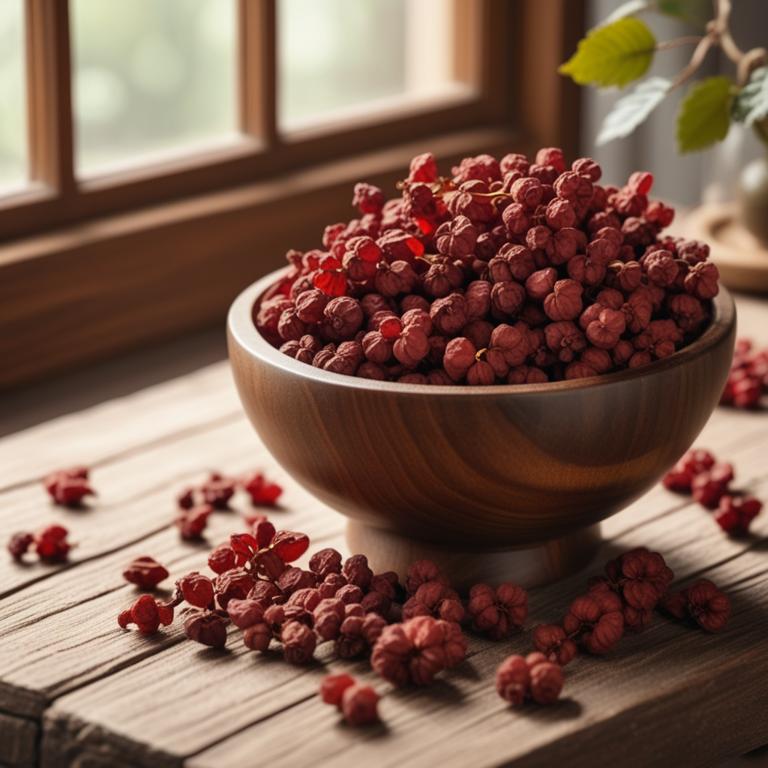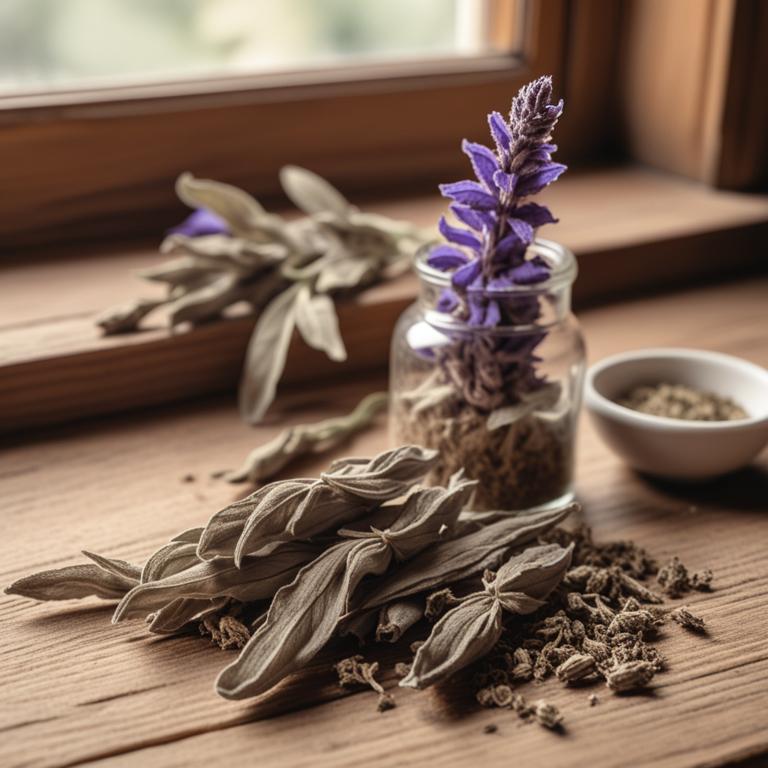Updated: Dec 1, 2024
Hormonal Imbalance: Causes and Prevention with Herbal Medicinal Preparations
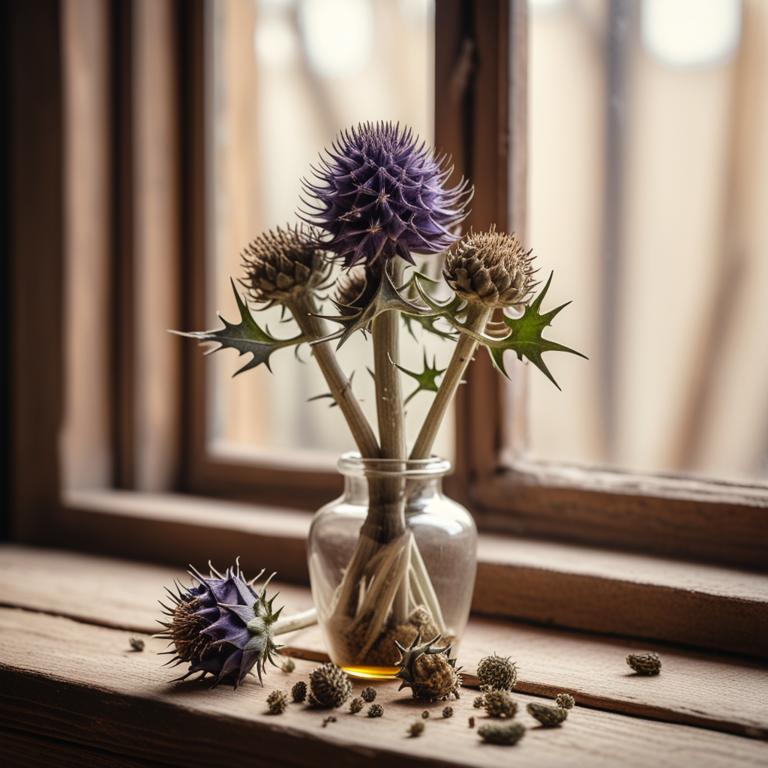
Hormonal imbalance is a common issue where the levels of hormones in your body are not in balance.
This can cause a range of symptoms, from mood swings and weight gain to fatigue and irregular periods. If left unchecked, hormonal imbalance can significantly affect your daily life, making it difficult to concentrate, sleep, and even enjoy activities you once loved. Hormonal imbalance is often caused by factors such as stress, poor diet, lack of sleep, and certain medical conditions. It can also be triggered by the use of birth control pills, menopause, and polycystic ovary syndrome (PCOS). When your hormones are out of balance, it can disrupt your body's natural functions, leading to a host of problems. Herbal remedies have been used for centuries to help balance hormones and alleviate symptoms. Certain herbs, such as maca root, have been shown to help regulate menstrual cycles and ease symptoms of menopause.
Peppermint tea can help calm the nervous system and reduce stress, which is a common contributor to hormonal imbalance. Chasteberry, also known as vitex, has been used to help regulate ovulation and ease symptoms of PMS. Ashwagandha, an adaptogenic herb, can help your body adapt to stress and balance cortisol levels. Herbal teas, tinctures, and supplements can be used to support hormonal balance. Drinking a warm cup of maca tea in the morning can help regulate your menstrual cycle and give you energy. Chasteberry tea can be consumed throughout the day to help ease symptoms of PMS. Ashwagandha supplements can be taken before bed to help reduce stress and promote better sleep.
These herbal remedies can be used in conjunction with a healthy diet and lifestyle to help support hormonal balance and alleviate symptoms.
Table of Contents
- What triggers and causes hormonal imbalance?
- What are the benefits of incorporating herbs into a treatment plan for hormonal imbalance?
- What medicinal herbs are commonly used to alleviate hormonal imbalance?
- What are the top herbal remedies for balancing hormonal imbalance?
- Which herbs are not safe to consume if you have a hormonal imbalance?
- FAQ
What triggers and causes hormonal imbalance?
The main causes of hormonal imbalance are related to problems with the glands that produce hormones in our body.
Polycystic Ovary (PCOS) is a condition where the ovaries have multiple cysts on them, which can disrupt hormone production. The ovaries produce estrogen and progesterone, but with PCOS, these levels become unbalanced. This can lead to irregular periods, weight gain, and acne. PCOS is often linked to insulin resistance, which can further affect hormone production. Thyroid Nodules are growths on the thyroid gland, which can affect the production of thyroid hormones. The thyroid gland regulates metabolism, and when it produces too much or too little hormone, it can lead to a hormonal imbalance. Some people with thyroid nodules may experience weight changes, fatigue, or hair loss.
Pituitary Tumors are growths on the pituitary gland, which controls the production of hormones from other glands. The pituitary gland acts as a master gland, sending signals to the ovaries, thyroid, and adrenal glands to produce hormones. If the pituitary gland is affected by a tumor, it can disrupt hormone production and lead to a hormonal imbalance. Symptoms may include headaches, fatigue, or vision problems. Adrenal Insufficiency occurs when the adrenal glands don't produce enough cortisol and aldosterone. These hormones help regulate blood pressure, metabolism, and stress response. When the adrenal glands are not functioning properly, it can lead to fatigue, weight loss, and low blood pressure.
This condition can be caused by autoimmune disorders, infections, or injury to the adrenal glands.
What are the benefits of incorporating herbs into a treatment plan for hormonal imbalance?
Using herbs for hormonal imbalance can bring many benefits.
One of the main advantages is that they can help regulate menstrual cycles and reduce symptoms like cramps and heavy bleeding. Herbs can also help balance mood swings, anxiety, and depression that often come with hormonal changes.
Additionally, they can support weight management, improve sleep, and increase energy levels. Many herbs have anti-inflammatory properties, which can reduce bloating and breast tenderness. They can also help lower cortisol levels, reducing stress and promoting a sense of calm.
Some herbs are rich in antioxidants, which can protect the body from cell damage and reduce the risk of chronic diseases.
What medicinal herbs are commonly used to alleviate hormonal imbalance?
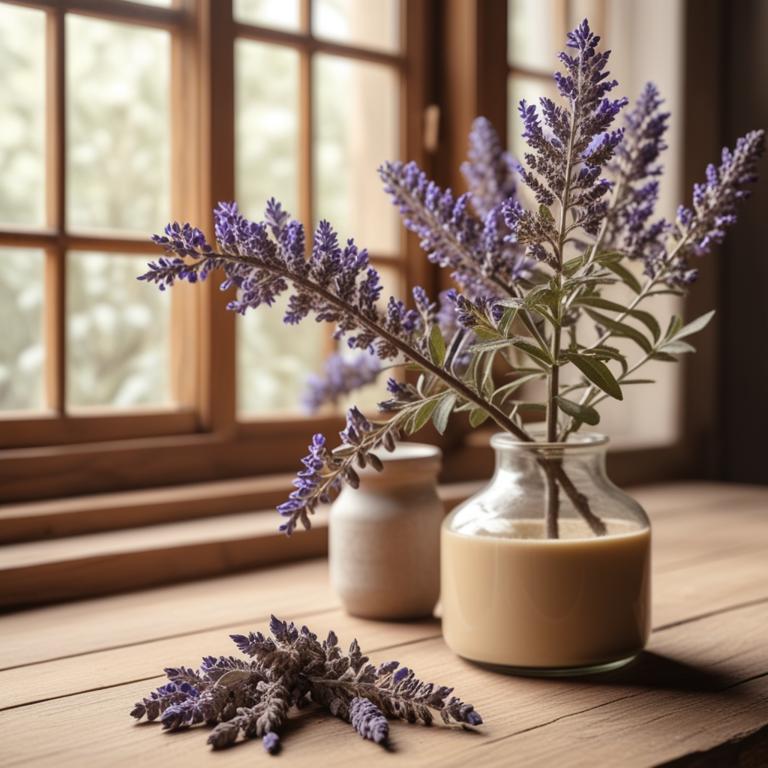
Hormonal imbalance can cause a range of issues, from mood swings to menstrual problems.
Certain herbs have been used for centuries to help regulate hormones and alleviate these symptoms. Vitex agnus-castus, also known as chaste tree, helps to balance estrogen levels and reduce symptoms of PMS, such as cramps and mood swings. It works by stimulating the pituitary gland, which regulates hormone production. Angelica sinensis, or dong quai, is often used to treat menstrual problems and fertility issues. It's thought to work by improving blood flow to the uterus and ovaries, which can help to regulate menstrual cycles.
Cimicifuga racemosa, or black cohosh, has been shown to reduce hot flashes and night sweats in menopausal women. It's believed to work by blocking the production of hormones that contribute to these symptoms. Glycyrrhiza glabra, or licorice root, has anti-inflammatory properties that can help to reduce stress and anxiety, which can contribute to hormonal imbalances. It also has a mild estrogenic effect, which can help to balance hormone levels. Hypericum perforatum, or St. John's Wort, has been used for centuries to treat depression and anxiety, which are often linked to hormonal imbalances.
It's thought to work by increasing the production of neurotransmitters, such as serotonin and dopamine, which can help to regulate mood.
What are the top herbal remedies for balancing hormonal imbalance?

Herbal preparations are often used to help balance hormones in the body.
One way to use herbs is through a decoction, which is made by boiling herbs in water to release their active ingredients. Decoctions are good for hormonal imbalance because they allow us to extract more of the herb's nutrients and compounds, which can then be used to support hormone regulation. Another way to take herbs is through a tincture, which is a concentrated liquid made by soaking herbs in a solvent like alcohol. Tinctures are convenient because they can be easily added to water or taken directly. They are also good for hormonal imbalance because they allow us to get a high dose of the herb's active ingredients in a small amount of liquid. Herbal capsules are also popular, and they work by containing dried herbs in a gelatin or vegetable-based capsule. This makes it easy to take herbs on the go, and the capsules can be taken with or without food.
Capsules are a good option for hormonal imbalance because they allow us to get a precise dose of the herb's active ingredients. Infusions and teas are also popular ways to take herbs. Infusions are made by steeping herbs in hot water, but unlike decoctions, they are not boiled. This makes infusions a good option for delicate herbs that might lose their potency if boiled. Teas are similar to infusions, but they can be made with cold water or steeped for a shorter time. Both infusions and teas are good for hormonal imbalance because they allow us to take herbs in a gentle, easy-to-digest form. These herbal preparations can be used to support hormone regulation in different ways. For example, some herbs like ashwagandha and maca are thought to help balance cortisol and estrogen levels, while others like chasteberry and black cohosh may help to regulate menstrual cycles.
By choosing the right preparation and herb, we can use herbal remedies to support hormone balance and promote overall health.
Additional Resources:
Which herbs are not safe to consume if you have a hormonal imbalance?
If you have a hormonal imbalance, it's a good idea to be cautious with certain herbs that can affect your body's delicate hormonal balance.
Panax ginseng, for example, can stimulate the body's production of male hormones, which may worsen hormonal imbalances in women, such as those related to menopause or polycystic ovary syndrome (PCOS). Ginkgo biloba, on the other hand, can increase the risk of bleeding and may not be suitable for people with conditions like endometriosis, which involves heavy menstrual bleeding.
Paeonia lactiflora, also known as peony root, can act as a diuretic and may worsen hormonal imbalances by affecting the body's water balance. Astragalus membranaceus, a plant commonly used in traditional Chinese medicine, can stimulate the adrenal glands and may worsen hormonal imbalances by increasing cortisol levels. Trifolium pratense, or red clover, contains isoflavones, which can mimic the effects of estrogen in the body and may exacerbate hormonal imbalances in women, particularly those with conditions like endometriosis or fibroids.
These herbs may interact with your body in complex ways, so it's best to consult with a healthcare professional before using them if you have a hormonal imbalance.
FAQ
Are there any specific herbs that can prevent hormonal imbalance?
Some herbs like ashwagandha and maca root are believed to help regulate hormonal balances.
Ashwagandha is thought to reduce cortisol levels and stress, while maca root is said to support thyroid function and balance estrogen levels.
These herbs may also help alleviate symptoms associated with hormonal imbalances.
Is it safe to use herbal remedies for hormonal imbalance during pregnancy?
Using herbal remedies for hormonal imbalance during pregnancy can be risky.
Some herbs may cause problems with the baby's development or make childbirth more complicated. For example, blue cohosh can slow down contractions and pennyroyal can cause liver damage.
It's essential to be cautious and consider the potential risks before using herbal remedies.
Are there any herbs that can reduce the frequency of hormonal imbalance?
Some herbs like maca, ashwagandha, and chasteberry have been studied for their potential to help balance hormonal levels.
Maca is thought to regulate menstrual cycles and reduce symptoms of PMS.
Ashwagandha may help alleviate stress-related hormonal imbalances, while chasteberry is sometimes used to treat menstrual irregularities and infertility.
Related Articles
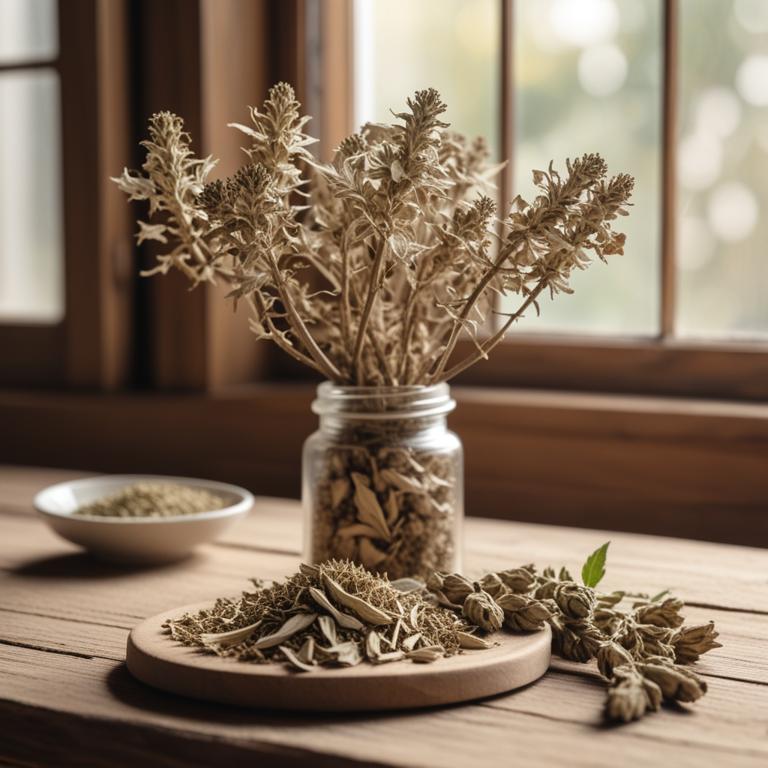
Causes of Aging: Natural Remedies with Medicinal Herbs and Preparations
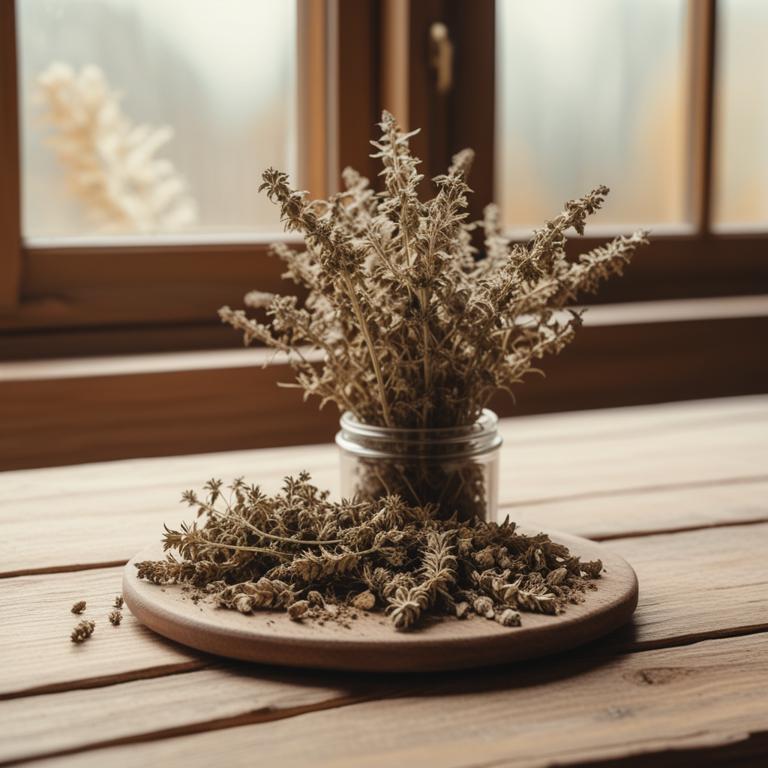
Hormonal Imbalance: Causes and Prevention with Herbal Medicinal Preparations
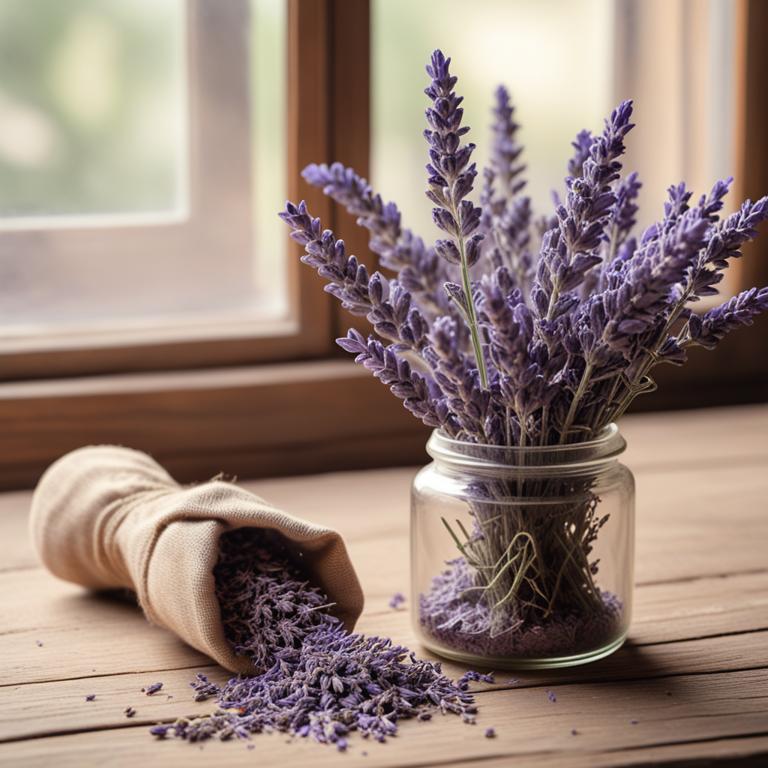
Overcoming Hot Flashes: Causes, Medicinal Herbs, and Herbal Preparations
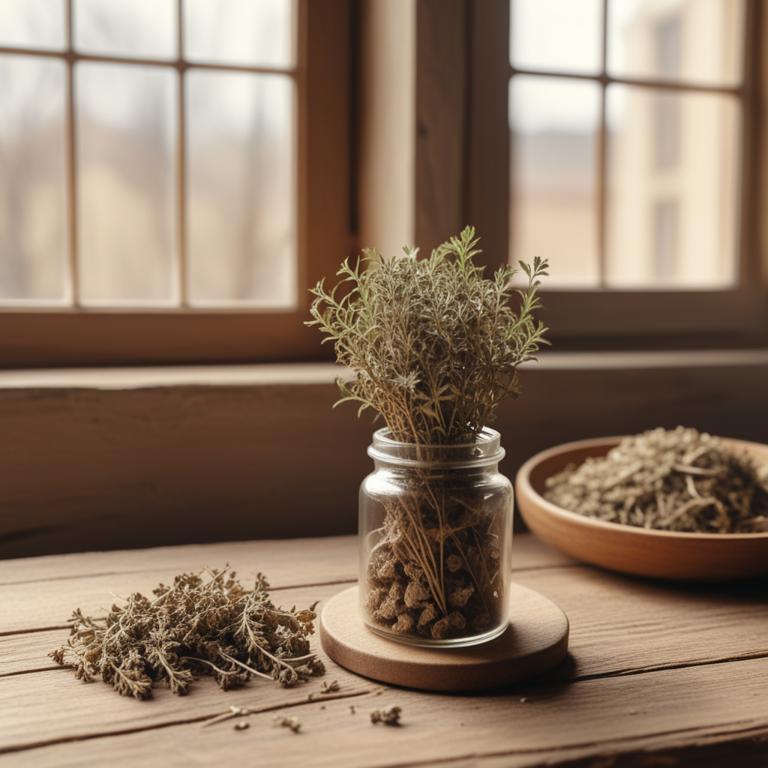
Understanding Hypothyroidism: Causes, Remedies, and Herbal Treatments
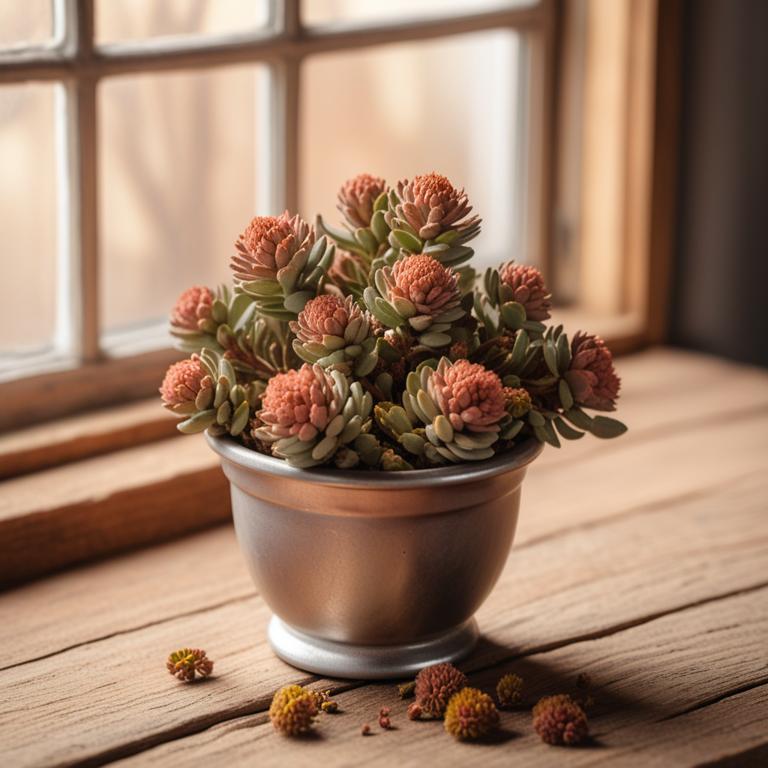
Understanding Adrenal Fatigue: Causes, Remedies, and Herbal Support
